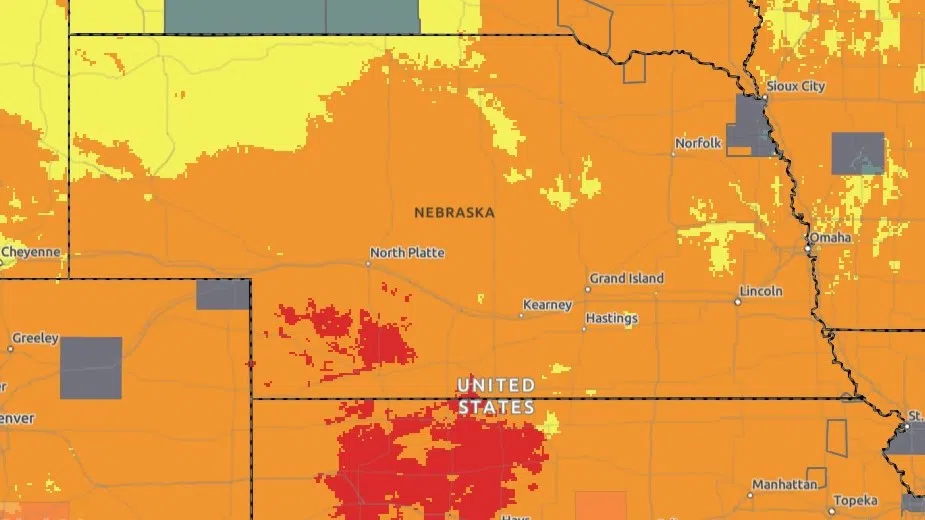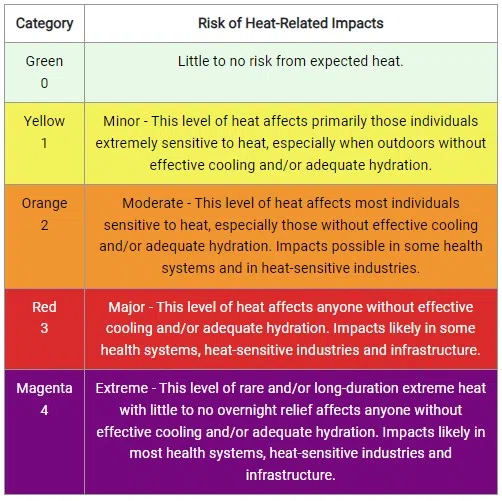A new web-tool from the National Weather Service provides a streamlined look at heat-impacts across the country, as May of 2024 goes down as the hottest in recorded history — marking 12 consecutive months of record heat.
The NWS “HeatRisk” map is an experimental color-numeric-based index looking at the forecast risk of heat-related impacts to occur over a 24-hour period. The HeatRisk index takes into consideration:
- How unusual the heat is for the time of the year
- The duration of the heat including both daytime and nighttime temperatures
- If those temperatures pose an elevated risk of heat-related impacts based on data from the CDC
The color-numeric-index goes from 0 (green — little to no heat risk) to 4 (magenta — extreme heat risk).
This index adds to official NWS heat measurements and is meant to provide risk guidance for heat-sensitive populations who need to take actions to protect their health.
“Heat is a big deal,” affirmed NWS Omaha Meteorologist Brian Barjenbruch. “On our local scale and at the shorter term weather level, this is where we can really start to correlate the weather forecast, with what happens in our health systems and what happens to people who are susceptible to heat illness for this forecast.”
The map offers a 7-day forecast of heart-risk, and can be viewed at wpc.ncep.noaa.gov/heatrisk.
This new tool is timely, as May 2024 was the hottest May on record globally, according to Europe’s Copernicus Climate Change Service (C3S), marking the 1-year of consistent record heat numbers, since June 2023.
The average global temperature for the warmest May on record hit 55.35 degrees F, which was 1.17 degrees F warmer than the 1991-2020 average.
“For the past year, every turn of the calendar has turned up the heat. Our planet is trying to tell us something,” António Guterres, United Nations Secretary-General said in a statement. “But we don’t seem to be listening. It’s climate crunch time. Now is the time to mobilize, act and deliver.”
“We are living in unprecedented times, but we also have unprecedented skill in monitoring the climate and this can help inform our actions,” C3S Director Carlo Buontempo said in a statement. “This string of hottest months will be remembered as comparatively cold (without action), but if we manage to stabilize the concentrations of GHGs (greenhouse gasses) in the atmosphere in the very near future, we might be able to return to these ‘cold’ temperatures by the end of the century.”








